|
|
Asia, a continent of contrast and convergence, is swiftly adopting the concept of smart cities to enhance the quality of life for its diverse population. With an irresistible blend of ancient traditions and cutting-edge technology, these urban hubs are redefining the future with innovative solutions. This is not just about digital transformation; it’s about creating liveable, sustainable, and, above all, intelligent cities.
Smart cities are more than just a constellation of technologies. At their core, they leverage artificial intelligence (AI), big data, and other technological advancements to improve infrastructure, healthcare, education, and energy efficiency.
Each city in our list has taken this concept and molded it into a unique model that addresses its own challenges and harnesses its individual strengths.
Below, we explore the top 10 smartest cities in Asia — places where traditional charm meets technological prowess. We also highlight how each city’s approach has made them leaders in this futuristic endeavor. Continue reading on to learn how these Asian megacities are spearheading the smart city revolution!
Key Takeaways
- Asia’s smart cities are driving progress by integrating tradition and innovative technology for sustainable urban development.
- Digital transformation in these cities improves infrastructure, healthcare, education, and energy efficiency.
- Smart cities like Singapore and Shenzhen showcase how data-driven solutions can enhance living conditions and economic opportunities.
- Major challenges for smart cities include cybersecurity, privacy concerns, and digital inequality.
- Despite these challenges, the evolution towards smart cities promises a future of enhanced quality of life and socio-cultural advancement.
The Rise of Smart Cities in Asia
The rapid development of smart cities in Asia is a testament to the region’s embrace of innovation and technology as mechanisms to improve urban life.
Faced with mounting urbanization and the challenges it brings, many Asian countries have turned to digital transformation as a solution. From Tokyo’s high-speed trains linked by IoT (Internet of Things) to Singapore’s AI-driven public services, the onset of smart cities in Asia demonstrates an exciting shift in urban development.
The need for sustainable growth, improved infrastructure, efficient resource management, and enhanced quality of life for residents have driven this journey toward digital urbanization.
As cities across Asia continue to grow at an unprecedented rate, the adoption of smart city concepts becomes increasingly important. These digitally integrated and data-powered cities are designed not just to cope with rapid population growth but also to create vibrant, innovative urban spaces that foster social cohesion and economic prosperity.
This surge in smart city initiatives across Asia is about more than just managing urban expansion or embracing technology for its own sake. It reflects a broader vision: to create livable cities that offer a high quality of life for all residents. It’s about building cities that are prepared for the future while honoring their past — a balance between preservation and progression.
Top Ten Smartest Cities in Asia
Asia is home to an impressive array of smart cities, each leveraging technology and data in innovative ways to improve the quality of life for their inhabitants.
Here’s a list of the top ten smartest cities in Asia that are leading the way in digital transformation:
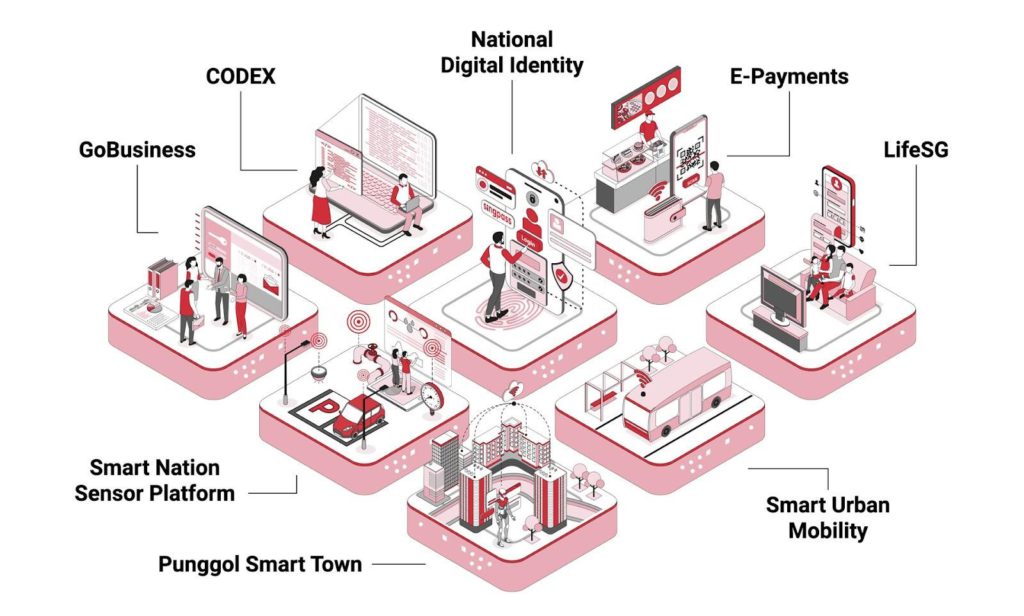
Image source. Singapore’s strategic national projects.
1. Singapore
Singapore’s Smart Nation initiative is designed to harness the power of digital technology and networks to improve living conditions, create economic opportunities, and build stronger communities.
This small island state has been lauded for its sophisticated e-Government services, such as Life SG, National Digital Identity (Singpass), and CentEx. It also boasts a unique digital infrastructure and uses data in innovative ways, such as predictive analytics for healthcare, real-time transport updates, and digital services for its residents.
Overall, 99% of Singapore’s government services are digital from end to end.
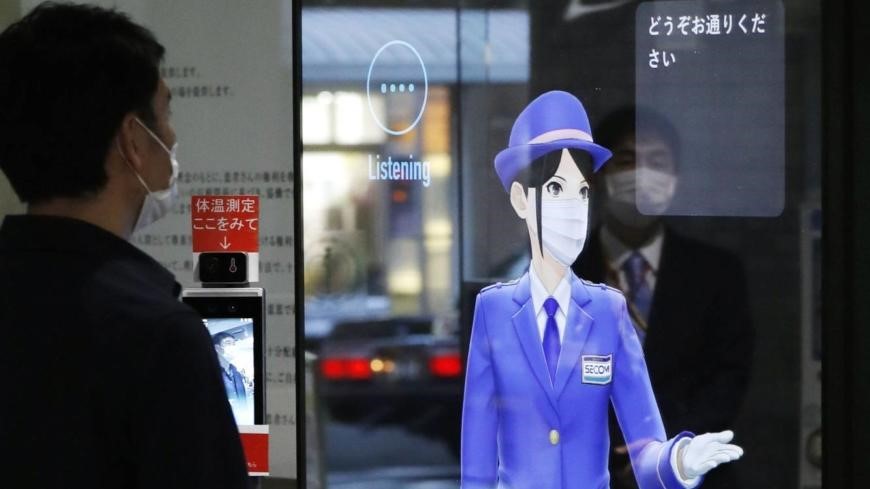
Image source. A virtual AI guide displayed on an electric panel welcomes visitors to Ogikubo Hospital in Tokyo.
2. Tokyo
Known for its high-tech environment, Tokyo has a sophisticated public transportation network that manages around 14 million people every single day. It includes an extensive subway system and trains that rarely run late.
Tokyo’s government is also working on digitizing its services, making procedures like paying taxes, registering a new business, or applying for public housing more efficient and less time-consuming.
In terms of public safety, Tokyo uses AI-enhanced video surveillance systems to help law enforcement and first responders, increasing overall city safety. Additionally, Tokyo is fostering a strong culture of innovation and entrepreneurship, with numerous tech startups calling the city home, contributing to the overall smart city ecosystem.
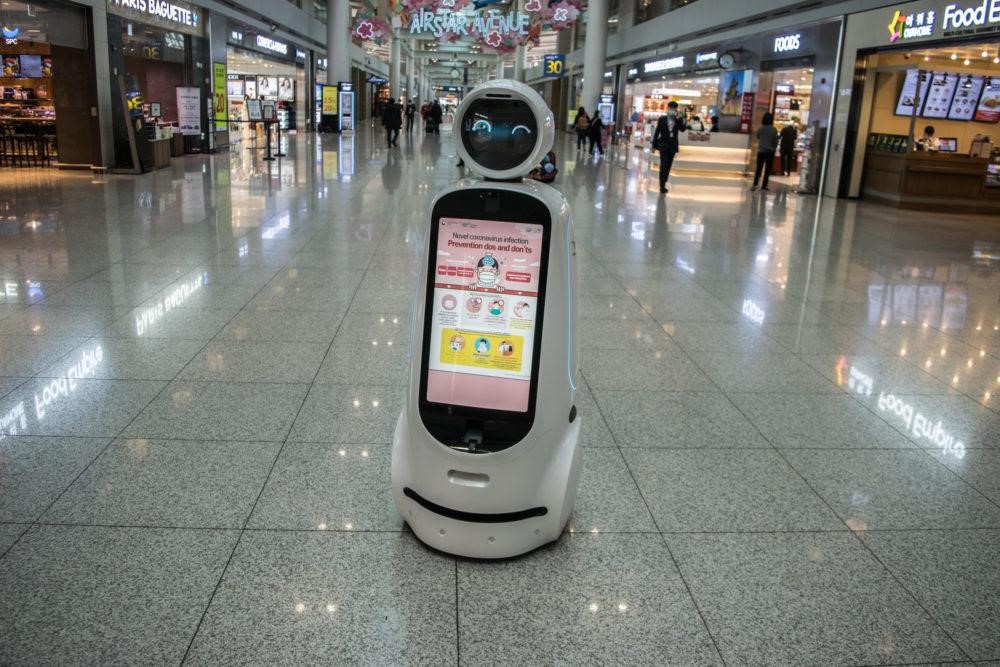
Image source. Self-driving robot spreading awareness during the Covid-19 pandemic.
3. Seoul
As part of its smart city initiatives, Seoul has embraced the Internet of Things (IoT) technology in a big way. The city developed the “IoT City Seoul” plan to encourage the use of IoT in everyday life and public services, such as city maintenance, safety, transportation, and environmental monitoring. It includes smart street lights that conserve energy by only turning on when necessary and sensors that monitor air quality throughout the city.
The city’s response to crises is also tech-focused. During the COVID-19 pandemic, for example, Seoul employed smart city technologies for contact tracing, case reporting, and disseminating crucial public health information (shown in the image above).
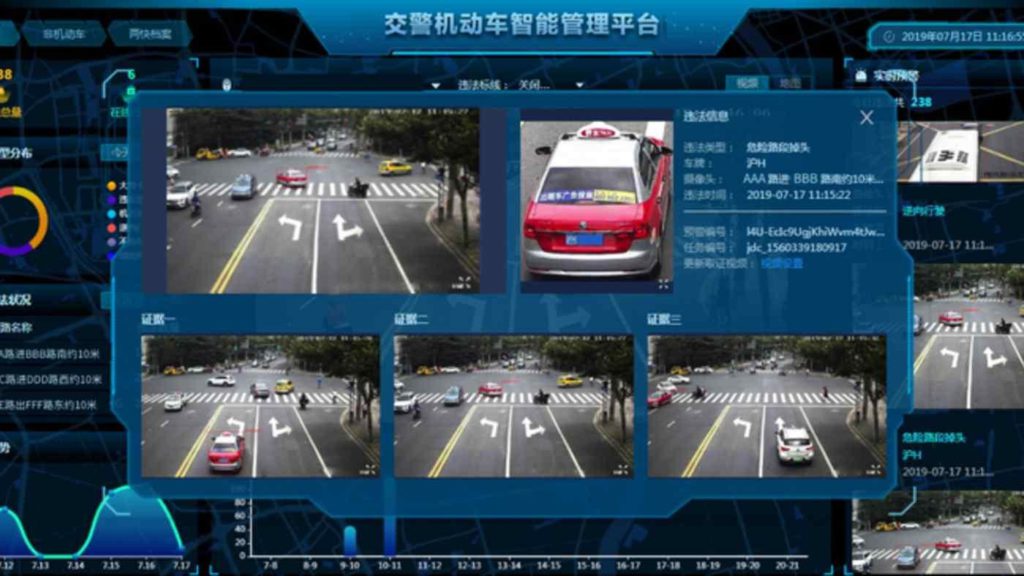
Image source. Shanghai-based Supermind Intelligent Technology uses video analytics systems on highways to improve traffic department management efficiency.
4. Shanghai
Shanghai, one of the most populated cities in the world, is known as China’s financial hub and is a global center for innovation and transportation. As a smart city, Shanghai has taken bold steps in integrating IoT into various aspects of everyday life.
Shanghai is leading in smart mobility with digitized and AI-powered traffic management systems that optimize traffic flow, reduce congestion, and improve road safety. The city has also implemented an electronic toll collection system for seamless, cashless payments.
Shanghai has been utilizing advanced technologies for environmental protection. For instance, the city uses AI and IoT technology to monitor air quality, predict pollution levels, and take necessary actions to maintain a healthy urban environment.
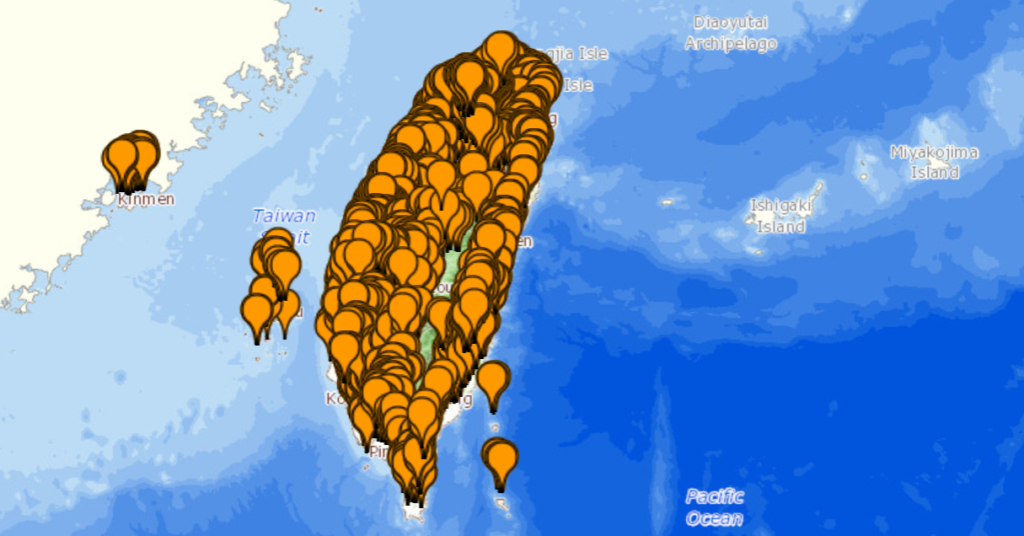
Image source. Free Wi-Fi hotspot coverage in Taiwan.
5. Taipei
The capital city of Taiwan has adopted various smart technologies to enhance the quality of life for its residents. Taipei has made significant strides in the world of digital education by incorporating AI and VR technology into the classroom, creating a more interactive learning environment.
It has also developed the “Go Smart” initiative to promote the use of IoT in areas such as transportation, environmental protection, and healthcare. The initiative includes smart bike rental systems and intelligent bus systems offering real-time information.
Taipei also offers city-wide free WiFi, known as “iTaiwan,” for residents and tourists, demonstrating its dedication to digital inclusivity.

Image source. Smart Dubai applications can be downloaded from the App Store or Google Play.
6. Dubai
Dubai, one of the seven emirates of the United Arab Emirates, is known worldwide for its luxurious lifestyle, innovative architecture, and vibrant business environment. But beyond these aspects, Dubai is also a leading smart city.
Dubai’s “Smart Dubai” initiative is one of the most comprehensive in the world, aiming to digitize all government services and transactions to create a seamless, efficient, and safe experience for all residents and visitors. This initiative includes the use of blockchain technology, which is expected to contribute significantly to enhancing the quality of life and business activity in the city.
Dubai has also invested heavily in digital infrastructure to connect various parts of the city. This includes Smart Dubai’s data platform, “Dubai Pulse,” which collects and organizes city data to be used for decision-making and innovation.

Image source. Scenes from the Elderly Care & Nursing Expo in Osaka.
7. Osaka
Osaka, the second-largest metropolitan area in Japan after Tokyo, is known for its modern architecture, vibrant nightlife, and hearty street food. But beyond this, Osaka is making significant strides toward becoming a smart city.
A central aspect of Osaka’s smart city initiatives is addressing Japan’s aging population problem. As one of the cities with the highest percentage of elderly citizens, Osaka is investing in technology for elderly care. This includes remote health monitoring systems, robots for physical assistance and companionship, and various IoT devices for better home management and safety.
In terms of public transportation, Osaka has an efficient, integrated system that combines subways, trains, and buses. The city has adopted digital ticketing and payment solutions, and it provides real-time updates about routes and schedules to enhance the commuter experience.
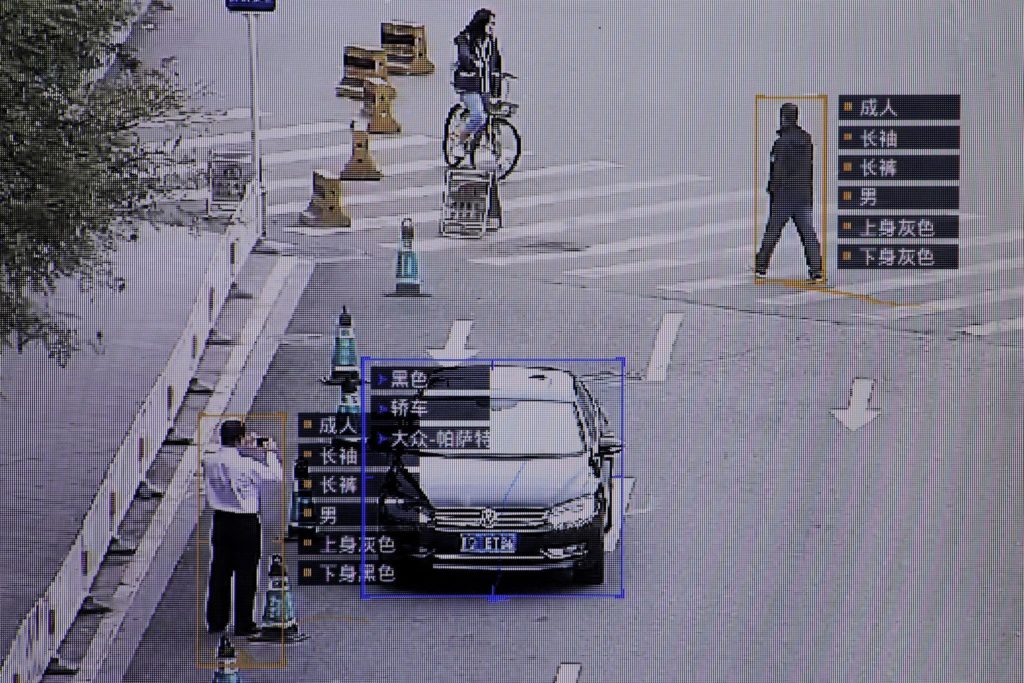
Image source. Chinese artificial intelligence companies develop mass surveillance systems.
8. Beijing
Beijing, the capital city of China, is known for its rich history and cultural heritage, being home to several UNESCO World Heritage Sites like the Forbidden City and the Great Wall. But apart from its historical significance, Beijing is also an emerging global leader in the realm of smart cities.
Beijing is deploying artificial intelligence (AI) and big data in a variety of sectors. The city uses AI technology to enhance public safety with smart cameras for surveillance and facial recognition systems. This technology also aids in urban planning, allowing the city to optimize traffic management, public transportation, and infrastructure development.
The city’s focus on digital transformation has led to the digitization of various public services. Beijing has made significant strides in e-governance, with several administrative processes and citizen services now available online, increasing efficiency and accessibility for residents.
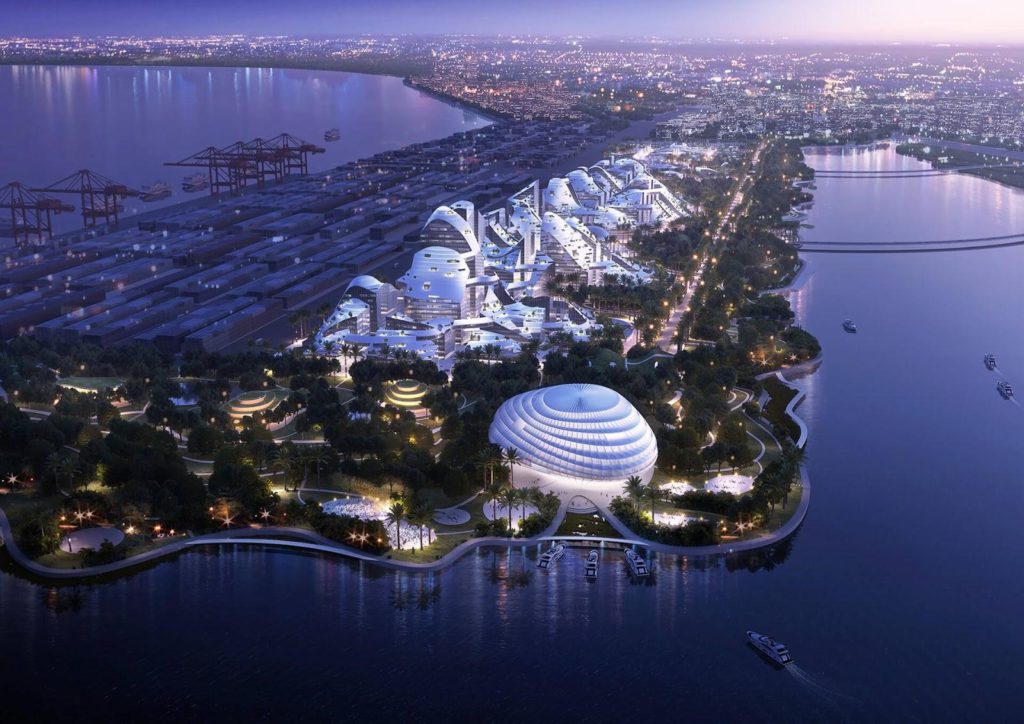
Image source. The proposed Tencent Campus set in Shenzhen’s scenic Qianhai Bay.
9. Shenzhen
Shenzhen, a city in southeastern China, is a global powerhouse in technology and innovation. Known as China’s Silicon Valley, it’s home to several tech giants, including Huawei, Tencent, and DJI.
Shenzhen’s smart city initiatives are among the most advanced in the world. The city is heavily invested in leveraging technology to improve the quality of life for its residents and boost its economy. Its focus areas include transportation, public safety, environmental management, and e-governance.
In transportation, Shenzhen is a global leader in electric mobility, with a fully electrified public bus fleet and a significant number of electric taxis. The city’s transportation infrastructure is also interconnected through IoT and AI technologies, providing real-time traffic information, intelligent routing, and digital payment systems.
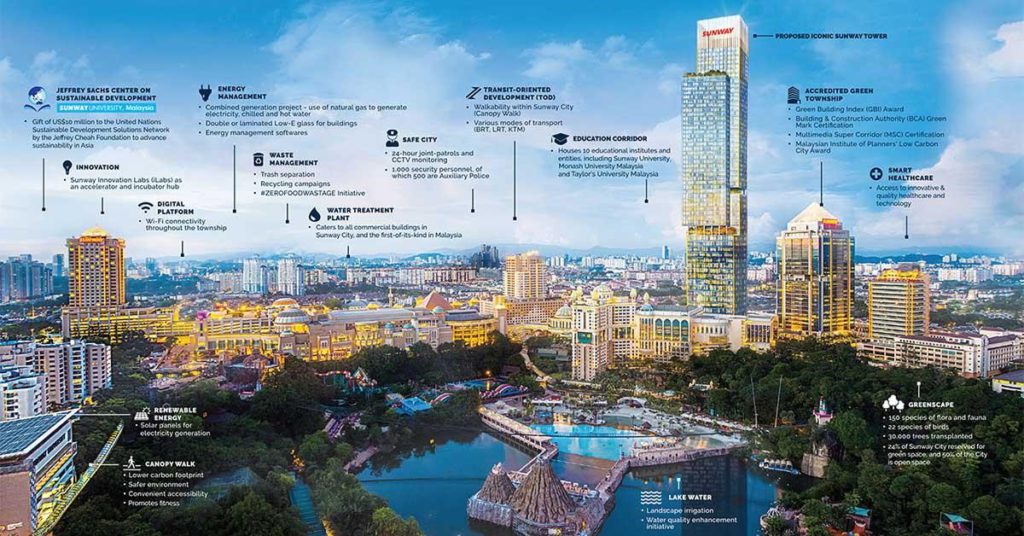
Image source. Suggested smart city solutions for Kuala Lumpur. Click here to enlarge.
10. Kuala Lumpur
Kuala Lumpur, Malaysia’s capital city, is known for its diverse culture, iconic skyscrapers like the Petronas Twin Towers, and bustling food scene. However, beyond its traditional image, Kuala Lumpur is rapidly transforming into a smart city.
One of Kuala Lumpur’s most notable smart city initiatives is its traffic management system. The city has integrated AI and big data analytics to manage traffic flow, reduce congestion, and improve road safety. This includes intelligent traffic lights, real-time traffic updates, and predictive analytics for traffic patterns.
The city also emphasizes sustainability. Kuala Lumpur has implemented various smart solutions to reduce its environmental impact, including energy-efficient buildings, waste management systems, and initiatives to promote the use of renewable energy.
Challenges and Opportunities of Smart Cities
Smart cities bring a wealth of opportunities but also present unique challenges that need to be navigated with care. Understanding these dynamics becomes crucial as urban centers across Asia continue to evolve into interconnected, data-driven hubs.
One of the most significant advantages of smart cities is their potential to dramatically improve the quality of life. By leveraging technology, cities can optimize resources, streamline public services, enhance safety measures, and foster sustainability. For instance, Singapore’s use of big data in public services or Shenzhen’s tech industry innovations are prime examples of how smart cities can create efficient, livable environments.
Smart cities also open up new economic opportunities. They attract investment, stimulate innovation, and create jobs in sectors like technology, data analysis, and cybersecurity. Moreover, they generate substantial amounts of valuable data that can drive better decision-making and fuel economic growth.
Despite these promising aspects, smart cities also face several challenges. Privacy and security are major concerns as the reliance on data collection and digital systems increases. It is essential for city administrations to ensure robust cybersecurity measures are in place to protect sensitive information and maintain public trust.
Inequality is another issue that smart cities must confront. There’s a risk that the benefits of smart city initiatives could bypass those who lack access to digital resources—a phenomenon known as the “digital divide.” Hence, it’s crucial that these initiatives are designed inclusively to ensure all citizens can benefit from the digital transformation.
Final Thoughts
Asia’s smart cities, from Singapore to Kuala Lumpur, epitomize the harmonious blend of technology and tradition, driving progress without compromising heritage. They offer innovative models of sustainable urban development and improved quality of life.
However, the journey isn’t without challenges. Issues like cybersecurity and digital inequality demand urgent attention. Still, the future looks promising, with smart cities using technology to address unique urban challenges and opportunities.
They represent not just a digital transformation but a socio-cultural evolution, marking Asia’s ascent into a future where the smart city concept is deeply ingrained in the urban fabric.












